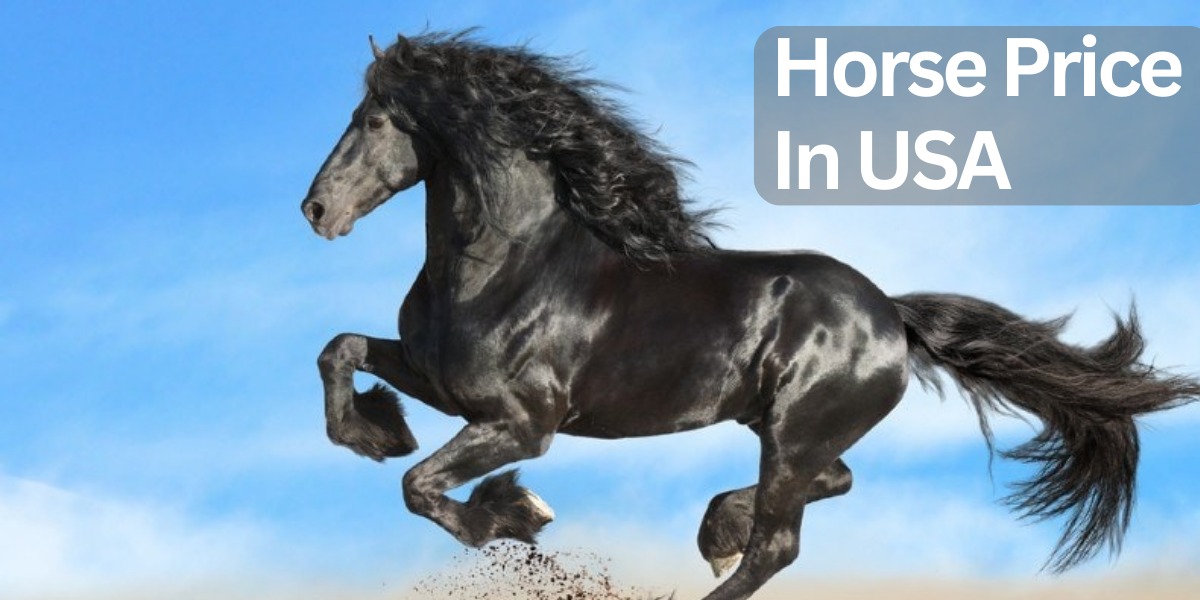Are you a horse enthusiast looking to buy or sell your equine companion in the USA? Or are you simply curious about the current market value of horses in different regions across the country? Look no further! In this blog post, we will dive into the nitty-gritty details of horse prices in the USA and provide you with valuable insights on what determines their cost. Whether you’re a seasoned equestrian or a newbie horse lover, this article is sure to quench your thirst for knowledge on how much it costs to own one of these majestic creatures. So saddle up and let’s get started!
What Factors Contribute To The Price Of Horses?
The horse price in the United States can vary a great deal depending on the region in which it is purchased, the type of horse, and even the age or pedigree of the horse. One of the most important factors that contribute to the price of horses is their genetics. Horses that have been bred for specific athletic abilities or other traits will often have a higher price tag than horses that are not particularly specialized. Additionally, horses that are older or have more prestigious breeding histories will also command a higher price.
In general, horses sell for an average of $3,000 to $6,000 per animal. However, there are some very rare and expensive horses that can sell for upwards of $10 million or more. Competition among buyers also affects the price of horses. Horses that are available in larger numbers and at lower prices are generally less desirable than those that are hard to come by and command a higher price.
How Do You Calculate The Market Value Of A Horse?
Calculating the market value of a horse can be difficult, as there are many factors that go into determining its worth. The most important factor is the animal’s breeding, as this can affect its size, age, and quality. Other factors that can contribute to a horse’s market price include its riding ability and fitness level, its bloodlines, its training history, and how popular it is in the breed.
What Are Some Common Equine Health Problems And Their Treatment?
Horses are often considered to be one of the most versatile and effective animals for transportation. However, horses can also suffer from a number of health problems that can cause them to require treatment. Some common equine health problems and their treatments include:
Equine colic is a condition that occurs when an animal in pain tries to move around excessively or vomit. Treatment typically includes medications and rest.
Equine paresis is a neurological disorder that affects the horse’s ability to move its limbs or torso. Treatment typically includes medication and rehabilitation.
Equine herpes virus is a virus that can cause lesions on the horse’s skin or mucous membranes, which may lead to lameness or respiratory problems. Treatment typically includes antiviral drugs and supportive care.
How Do You Care For A Horse During Its Lifetime?
Horses are expensive to keep and maintain. Horses require a lot of care, both during their lifetime and in between horse sales. Here are some tips on how to care for a horse properly:
First and foremost, horses need plenty of exercise. They should be allowed to run, gallop, or play outdoors for at least an hour each day. If your horse is kept indoors, it should be given an enclosed space with access to a large field or park. Horseshoers also recommend providing hay, straw, and water in buckets or troughs as well as carrots and apples.
A good diet for a horse includes hay, straw, corn, oats, molasses (or other sweeteners), fresh vegetables (such as carrots or apples), minerals (such as salt), and water. Feed your horse three times per day – morning, noon-time, and night – unless otherwise specified by the veterinarian. Do not overfeed your horse; excess weight can lead to health problems such as joint problems and metabolic issues.
Horses can get sick very easily so always take them to the veterinarian if they become ill. Stable horses should have yearly exams by the veterinarian; Arabians may need more frequent exams depending on their age and activity level. Some common diseases that horses can contract include pneumonia (a lung infection), kidney infections, colic (severe abdominal pain caused by gas or intestinal obstruction), laminitis (inflammation of the hoof tissue), Equine protozoal myelopathy (EPM), and equine herpes virus.
What Insurance Policies Are Available For Horse Owners?
There are many different types of insurance policies that are available for horse owners. Here are some examples:
Horse liability insurance covers damage or injury that a horse may cause to people or property. This type of policy can help pay for losses, such as medical expenses, property damage, and lawsuits.
Equine insurance is designed to protect both the horse and the owner in the event of an accident. This type of coverage can include loss of income due to missed work, vet bills, and other expenses.
Riding crop insurance is another type of policy that can help cover damages that may occur while riding or training your horse. This could include things like fallen trees or crops, injury to yourself or your horse, and theft from your property. More Post Visit










